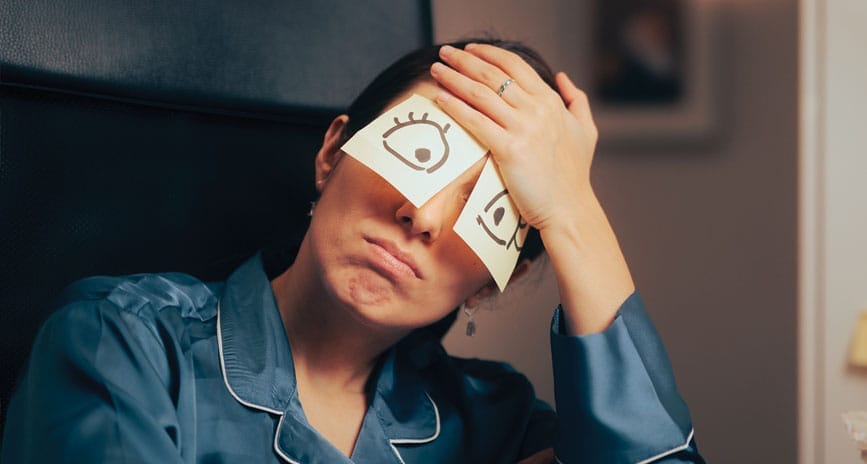On the face of it shift work and flexible working patterns can seem like great options. Part of the appeal may be that you’re free to do things when others are at work. You can shop, visit places, get things done with relative ease. And from a business and operations perspective shift and flexible working patterns provide full 24 hour cover and the means to maximise efficiency during opening hours. They are used effectively in retail, call centres, medical, security, catering, hospitality, the emergency services and in taxi or delivery driving overnight. But for the worker, the reality often dawns that people with whom you want to spend time are busy, at work, or you’re unavailable because you’re catching up on some desperately needed sleep.
Shift workers often average only 5-6 hours sleep per stretch, less than the more usual 7-8 hours. This can lead to stress, FOMO, a sense of isolation and ultimately health concerns. And for the business owner, shift work can take its toll on your staff, who are statistically more pre-disposed to suffer from insomnia and sleep-related issues, resulting in more accidents, poor concentration and absenteeism. Mental health can be affected over time, potentially leading to depression, reduced work performance and difficulties with personal relationships.
Here are some tips for coping with flexible and shift working patterns;
Rotating shift patterns have been found to cause havoc with the circadian body clock and ultimately can result in problematic sleep patterns developing. Try, whenever possible, to keep to a similar bedtime routine, even when not working. If possible, arrange a shift pattern that allows days off between night shifts in order to recover. Aim to keep to a consistent routine so that your body rhythms adjust.
Some employers appreciate that sleep is an issue for the shift worker and offer on-site employees 20 minute nap breaks during their shifts. Accept the offer and take the edge off extreme tiredness. It’s been found to be a viable and effective means of supporting and maintaining a healthier workforce, as many employers are aware that absenteeism, poor performance and many work-related accidents can be ascribed to stress and lack of sleep.
Morale can be affected when staff find themselves regularly missing out on important family and social events due to their flexible work schedules. FOMO, guilt and issues with personal relationships need to be addressed. A sensitive employer will appreciate the advantages of supporting good, trained staff, will not want to lose them and will aim to offer open-door communications, training and be as supportive as possible.
Be active and keep your energy levels up during breaks. Get fresh air, walk, run, even exercise and elevate your circulation levels. Take healthy food and water.
Manage your caffeine intake. At the start of a shift pattern it’s important to stay awake, but as you’re nearing the end of a shift and thinking about getting some sleep, it’s helpful to minimise your caffeine levels. Be aware that the most sleepy time is between 4 – 5am, so ensure that there are tasks which keep you alert and interested; avoid saving tedious or boring jobs until the end of your shift.
How far do you travel to work? Try to maximise your rest time by, if possible, avoiding long commutes or doing errands on the way home, which will often serve to keep you awake and hinder your falling asleep. If you feel sleepy when driving (and shift workers are almost twice as likely to fall asleep at the wheel) consider driving without shoes, keeping the window down, singing along to the radio.
Talk and share helpful hints and tips with co-workers and colleagues. Find out how they cope and learn from each other.
Sleep can be elusive and difficult to schedule. Some shift-workers find that getting enough sleep becomes a major preoccupation, constantly playing on their minds. It can be stressful trying to maintain a semblance of normal life, wanting to socialise, nurture relationships, keep in touch with family and friends when working shifts. Even eating meals at unusual times can throw life into disarray, particularly for those on flexible shift patterns where each week has a different schedule.
Daytime sleeping can be fraught with all manner of distractions, ranging from the practical considerations of coping with daylight and external noises through to guilt at all the things we could, must, ought to be doing. Negotiations with ourselves about how little sleep we can manage on are a regular occurrence, as well as the desire to have a normal life outside work.
Support good sleep by ensuring your bedroom is dark and comfortable. Maybe use black-out blinds. We’re programmed to sleep at night and awaken when it’s daylight. Ask housemates to be respectful and keep noise to a minimum for a few hours. An eye mask or ear plugs may help. Turn your phone to silent.
Shift work can be a useful option for a time. Be aware of the importance of good self-care and encourage your employer to be supportive too during this time.

Susan Leigh MNCH (ACC)
Altrincham, Cheshire and South Manchester counsellor, hypnotherapist, relationship counsellor, writer and media contributor offers help with relationship issues, stress management, assertiveness and confidence. She works with individual clients, couples and provides corporate workshops and support. She’s author of 3 books, all on Amazon and with easy to read sections, tips and ideas to help you feel more positive about your life. To order a copy or for more information, help and free articles visit www.lifestyletherapy.net
For more articles, information, or to make contact please call 0161 928 7880 or visit www.lifestyletherapy.net




